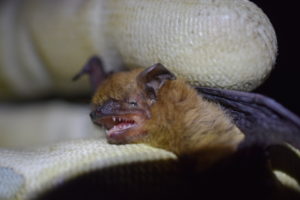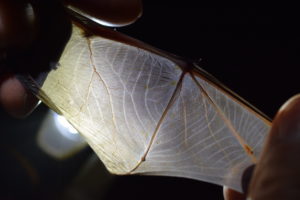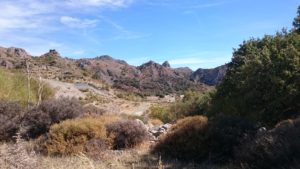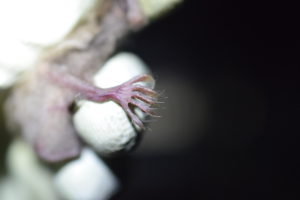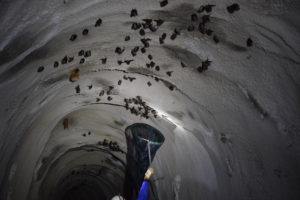Lesvos is the third biggest Greek island, so on this trip we concentrated on the north and west parts of the island. It was challenging to find potential roost locations and likely trapping sites due to the volcanic geology in this barren-looking region; there were no caves as such, old mines were either blocked up or impossible to find (as were some of the caves), streams and rivers sank underground, and there was little in the way of forests.
Despite this however, we had some interesting evenings trapping by the west coast and we caught a bat that we had recorded on the last few trips but never seen…. the long-fingered bat. And in a tunnel up in the mountains we caught another new species, the Mediterranean horseshoe. We ended up with a good species list for the island as well as a puzzle to be solved in the form of very small adult pipistrelles.
Our species list for Lesvos, from both trapping and sound recordings, included:
| Common pipistrelle | Pipistrellus pipistrellus |
| Kuhl’s pipistrelle | Pipistrellus kuhlii |
| Lesser mouse-eared | Myotis blythii |
| Greater mouse-eared | Myotis myotis |
| Long-fingered bat | Myotis capaccinii |
| Greater horseshoe | Rhinolophus ferrumequinum |
| Lesser horseshoe | Rhinolophus hipposideros |
| Mediterranean horseshoe | Rhinolophus euryale |
| Blasius’ horseshoe | Rhinolophus blasii |

